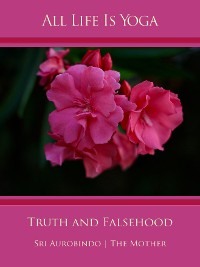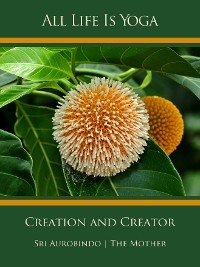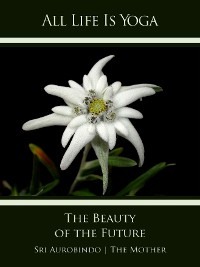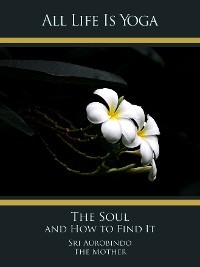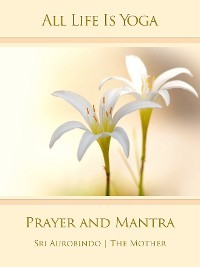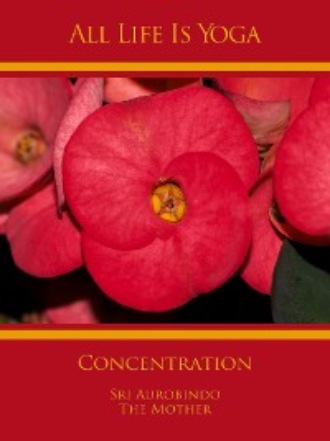
Полная версия

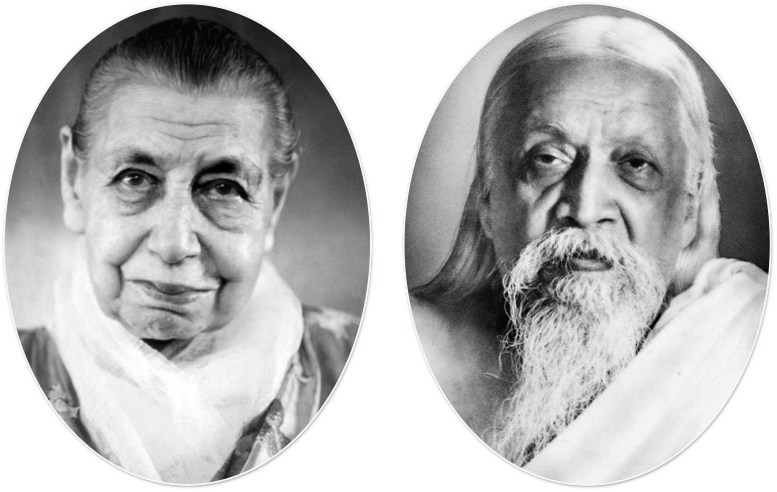
Omsriaurobindomira
All
Life
Is
Yoga
“All life is Yoga.” – Sri Aurobindo
Concentration
Sri Aurobindo | The Mother

SRI AUROBINDO
DIGITAL EDITION

Copyright 2020
AURO MEDIA
Verlag und Fachbuchhandel
Wilfried Schuh
www.auro.media
www.savitri.yoga
www.sriaurobindo.center
eBook Design

SRI AUROBINDO DIGITAL EDITION
Germany, Berchtesgaden
ALL LIFE IS YOGA
Concentration Selections from the Works of Sri Aurobindo and the Mother Second edition 2020 ISBN 978-3-937701-86-8
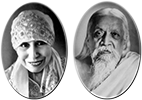
© Photos and selections of the works of Sri Aurobindo and the Mother:
Sri Aurobindo Ashram Trust
Puducherry, India

Flower on the cover:
Euphorbia milii. Bright red. Spiritual significance and explanation given by the Mother: Concentration Does not aim at effort, but is simple and persistent.
Publisher’s Note
This is one in a series of some e-books created by SRI AUROBINDO DIGITAL EDITION and published by AURO MEDIA under the title All Life Is Yoga. Our effort is to bring together, from Sri Aurobindo and the Mother, simple passages with a practical orientation on specific subjects, so that everyone may feel free to choose a book according to his inner need. The topics cover the whole field of human activity, because true spirituality is not the rejection of life but the art of perfecting life.
While the passages from Sri Aurobindo are in the original English, most of the passages from the Mother (selections from her talks and writings) are translations from the original French. We must also bear in mind that the excerpts have been taken out of their original context and that a compilation, in its very nature, is likely to have a personal and subjective approach. A sincere attempt, however, has been made to be faithful to the vision of Sri Aurobindo and the Mother. These excerpts are by no means exhaustive.
Bringing out a compilation from the writings of Sri Aurobindo and the Mother, which have a profound depth and wideness unique, is a difficult task. The compiler’s subjective tilt and preferences generally result in highlighting some aspects of the issues concerned while the rest is by no means less significant. Also without contexts of the excerpts the passages reproduced may not fully convey the idea – or may be misunderstood or may reduce a comprehensive truth into what could appear like a fixed principle.
The reader may keep in mind this inherent limitation of compilations; compilations are however helpful in providing an introduction to the subject in a handy format. They also give the readers a direct and practical feel of some of the profound issues and sometimes a mantric appeal, musing on which can change one’s entire attitude to them.
The excerpts from the writings of Sri Aurobindo and the Mother carry titles and captions chosen by the editor, highlighting the theme of the excerpts and, whenever possible, borrowing a phrase from the text itself. The sources of the excerpts are given at the end of each issue.
We hope these compilations will inspire the readers to go to the complete works of Sri Aurobindo and the Mother and will help them to mould their lives and their environments towards an ever greater perfection.
“True spirituality is not to renounce life, but to make life perfect with a Divine Perfection.” – The Mother
* * *
ContentsTitle PageCopyrightPublisher’s NoteQuotationI. CONCENTRATION – ITS IMPORTANCE IN LIFE1. Concentration – Indispensable in Life2. Two Practical ExamplesII. INTRODUCTION1. What is Yogic Concentration2. Two Purposes of Concentration3. Its Prime Importance4. Purity and Concentration5. Difference Between Concentration and MeditationIII. PRACTICAL GUIDANCE1. Some Words of Guidance2. Two Questions and Answers3. How to Cultivate Concentration4. A Method of Learning IdentificationIV. THE DISCIPLINE1. Where to Concentrate2. Concentration in the Heart3. Concentration in or above the Head4. Integral Yoga and ConcentrationAPPENDIXReferencesGuideCoverTable of ContentsStart
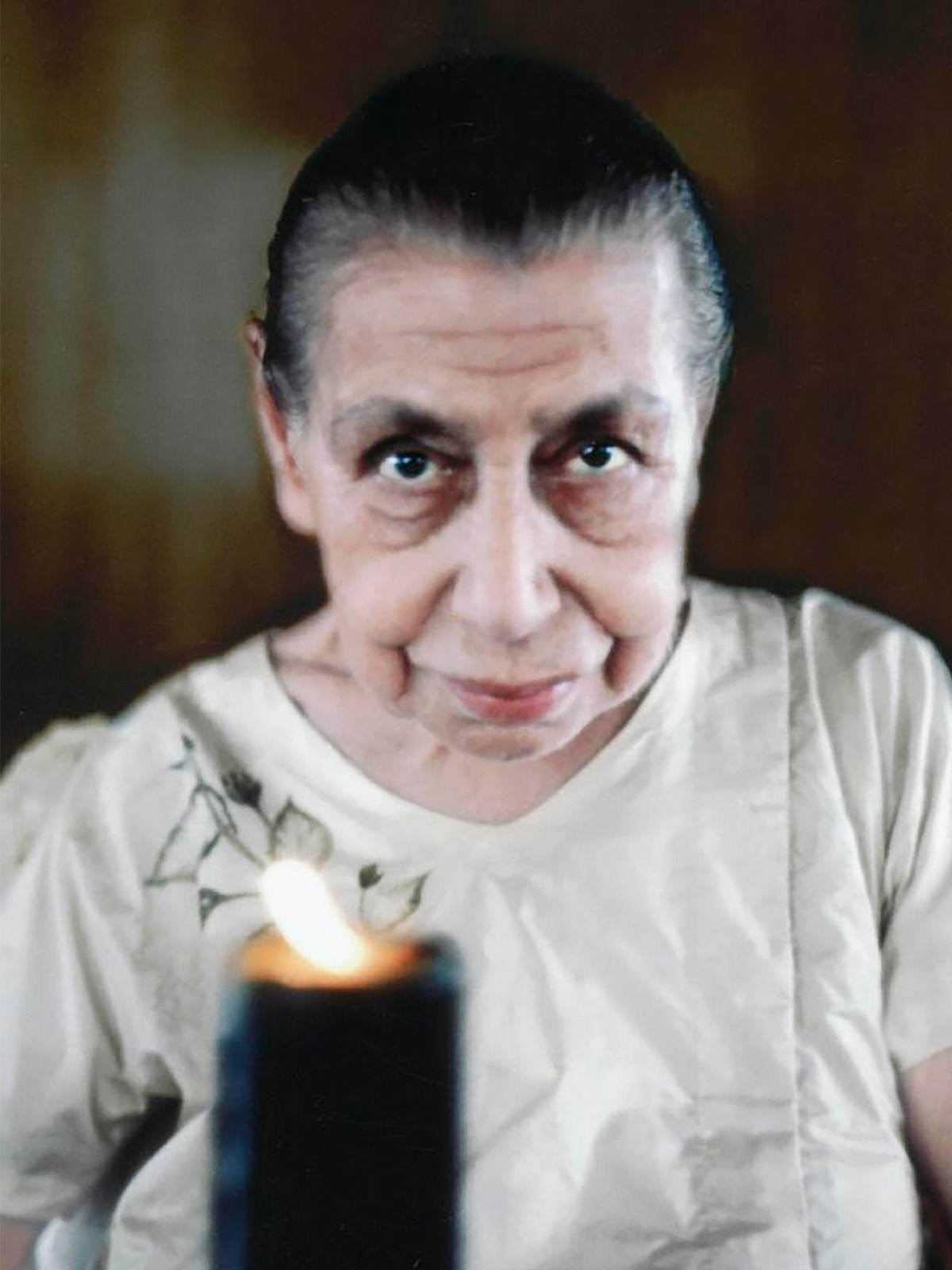
The Mother
Concentration does not mean meditation; on the contrary, concentration is a state one must be in continuously, whatever the outer activity. By concentration I mean that all the energy, all the will, all the aspiration must be turned only towards the Divine and His integral realisation in our consciousness. – The Mother
* * *
Chapter 1
Concentration – Indispensable in Life
Words of the Mother
...whatever you may want to do in life, one thing is absolutely indispensable and at the basis of everything, the capacity of concentrating the attention. If you are able to gather together the rays of attention and consciousness on one point and can maintain this concentration with a persistent will, nothing can resist it – whatever it may be, from the most material physical development to the highest spiritual one. But this discipline must be followed in a constant and, it may be said, imperturbable way; not that you should always be concentrated on the same thing – that’s not what I mean, I mean learning to concentrate.
And materially, for studies, sports, all physical or mental development, it is absolutely indispensable. And the value of an individual is proportionate to the value of his attention.
And from the spiritual point of view it is still more important. There is no spiritual obstacle which can resist a penetrating power of concentration. For instance, the discovery of the psychic being, union with the inner Divine, opening to the higher spheres, all can be obtained by an intense and obstinate power of concentration – but one must learn how to do it.
There is nothing in the human or even in the superhuman field, to which the power of concentration is not the key.
You can be the best athlete, you can be the best student, you can be an artistic, literary or scientific genius, you can be the greatest saint with that faculty. And everyone has in himself a tiny little beginning of it – it is given to everybody, but people do not cultivate it.
* * *
Chapter 2
Two Practical Examples
Words of the Mother
When one works and wants to do one’s best, one needs much time. But generally we don’t have much time, we are in a hurry. How to do one’s best when one is in a hurry?
It is a very interesting subject and I wanted to speak to you about it in detail, one day. Generally when men are in a hurry, they do not do completely what they have to do or they do badly what they do. Well, there is a third way, it is to intensify one’s concentration. If you do that you can gain half the time, even from a very short time. Take a very ordinary example: to have your bath and to dress; the time needed varies with people, doesn’t it? But let us say, half an hour is required for doing everything without losing time and without hurrying. Then, if you are in a hurry, one of two things happens: you don’t wash so well or you dress badly! But there is another way – to concentrate one’s attention and one’s energy, think only of what one is doing and not of anything else, not to make a movement too much, to make the exact movement in the most exact way, and (it is an experience lived, I can speak of it with certitude) you can do in fifteen minutes what you were formerly doing in half an hour, and do it as well, at times even better, without forgetting anything, without leaving out anything, simply by the intensity of the concentration.
And this is the best answer to all those who say, “Oh, if one wants to do things well, one must have time.” This is not true. For all that you do – study, play, work – there is only one solution: to increase one’s power of concentration. And when you acquire this concentration, it is no longer tiring. Naturally, in the beginning, it creates a tension, but when you have grown used to it, the tension diminishes, and a moment comes when what fatigues you is to be not thus concentrated, to disperse yourself, allow yourself to be swallowed by all kinds of things, and not to concentrate on what you do. One can succeed in doing things even better and more quickly by the power of concentration. And in this way you can make use of work as a means of growth...
*
Words of the Mother
(A student) For a mathematical problem, sometimes the solution comes quickly, sometimes it takes too long.
Yes, it is exactly that: it depends on the degree of concentration. If you observe yourself, you will notice this quite well: when it does not come, it is because of a kind of haziness in the brain, something cloudy, like a fog somewhere, and then you are there as in a dream. You push forward trying to find it, and it is as though you were pushing into cotton-wool, you do not see clearly there; and so nothing comes. You may remain in that state for hours.
Concentration consists precisely in removing the cloud. You gather together all the elements of your intelligence and fix them on one point, and then you do not even try actively to find the thing. All that you do is to concentrate in such a way as to see only the problem – but seeing not only its surface, seeing it in its depth, what it conceals. If you are able to gather together all your mental energies, bringing them to a point which is fixed on the enunciation of the problem, and you stay there, fixed, as though you were about to drill a hole in the wall, all of a sudden it will come. And this is the only way. If you try: Is it this, is it that, is it this, is it that?... You will never find anything or else you will need hours. You must get your mental forces to a point with strength enough to pierce through the words and strike upon the thing that is behind. There is a thing to be found – find it.
And it is always the days you are a little hazy that it becomes difficult. You are hazy: as though there is something you seem to catch and which escapes you.
Naturally, if it is materially impossible – you do not have to deal with monsters! I believe your teachers are reasonable enough and if you go to them and say, “Well, I could not do it, I had no time, I did what I could, I did not have the time”, they won’t scold you, I don’t think so. But here ninety-nine times out of a hundred, it is a kind of half-inertia of the mind which makes you think that you have too much work. If you observe yourself, you will find out that there is always something which pulls this way, something which pulls that way and then this kind of haziness as though you were living in cottonwool, in the clouds: nothing is clear.
The usefulness of work is nothing else but that: to crystallise this mental power. For, what you learn (unless you put it in practice by some work or deeper studies), half of what you learn, at least, will vanish, disappear with time. But it will leave behind one thing: the capacity of crystallising your thought, making something clear out of it, something precise, exact and organised. And that is the true usefulness of work: to organise your cerebral capacity.
* * *
Chapter 1
What is Yogic Concentration
Words of Sri Aurobindo
Concentration is a gathering together of the consciousness and either centralising at one point or turning on a single object, e.g. the Divine – there can also be a gathered condition throughout the whole being, not at a point.
*
Words of Sri Aurobindo
Ordinarily the consciousness is spread out everywhere, dispersed, running in this or that direction, after this subject and that object in multitude. When anything has to be done of a sustained nature, the first thing one does is to draw back all this dispersed consciousness and concentrate. It is then, if one looks closely, found to be concentrated in one place and on one occupation, subject or object – as when you are composing a poem or a botanist is studying a flower. The place is usually somewhere in the brain, if it is the thought, in the heart if it is the feeling in which one is concentrated. The Yogic concentration is simply an extension and intensification of the same thing. It may be on an object as when one does tratak on a shining point – then one has to concentrate so that one sees only that point and has no other thought but that. It may be on an idea or a word or a name, the idea of the Divine, the word OM, the name Krishna, or a combination of idea and word or idea and name. But, farther, in Yoga one also concentrates in a particular place. There is the famous rule of concentrating between the eyebrows – the centre of the inner mind, of occult vision, of the will is there. What you do is to think firmly from there on whatever you make the object of your concentration or else try to see the image of it from there. If you succeed in this, then after a time you feel that your whole consciousness is centred there in that place – of course for the time being. After doing it for some time and often, it becomes easy and normal.
I hope this is clear. Well, in this Yoga, you do the same, not necessarily at that particular spot between the eyebrows, but anywhere in the head or at the centre of the chest where the physiologists have fixed the cardiac centre. Instead of concentrating on an object, you concentrate in the head in a will, a call for the descent of the peace from above or, as some do, an opening of the unseen lid and an ascent of the consciousness above. In the heart-centre one concentrates in an aspiration, for an opening, for the presence or living image of the Divine there or whatever else is the object. There may be japa of a name but, if so, there must also be a concentration on it and the name must repeat itself there in the heart-centre.
It may be asked what becomes of the rest of the consciousness when there is this local concentration? Well, it either falls silent as in any concentration or, if it does not, then thoughts or other things may move about, as if outside, but the concentrated part does not attend to them or notice. That is when the concentration is reasonably successful.
One has not to fatigue oneself at first by long concentration if one is not accustomed, for then in a jaded mind it loses its power or value. One can “relax” and meditate instead of concentrating. It is only as the concentration becomes normal that one can go on for a longer and longer time.
* * *
Chapter 2
Two Purposes of Concentration
Words of Sri Aurobindo
Concentration is necessary, first, to turn the whole will and mind from the discursive divagation natural to them, following a dispersed movement of the thoughts, running after many branching desires, led away in the track of the senses and the outward mental response to phenomena: we have to fix the will and the thought on the eternal and real behind all, and this demands an immense effort, a one-pointed concentration. Secondly, it is necessary in order to break down the veil which is erected by our ordinary mentality between ourselves and the truth; for outer knowledge can be picked up by the way, by ordinary attention and reception, but the inner, hidden and higher truth can only be seized by an absolute concentration of the mind on its object, an absolute concentration of the will to attain it and, once attained, to hold it habitually and securely unite oneself with it. For identification is the condition of complete knowledge and possession; it is the intense result of a habitual purified reflecting of the reality and an entire concentration on it; and it is necessary in order to break down entirely that division and separation of ourselves from the divine being and the eternal reality which is the normal condition of our unregenerated ignorant mentality.
* * *
Chapter 3
Its Prime Importance
Words of Sri Aurobindo
To change the nature is not easy and always takes time, but if there is no inner experience, no gradual emergence of the other purer consciousness that is concealed by all these things you now see, it would be almost impossible even for the strongest will. You say that first you must get rid of all these things, then have the inner experiences. But how is that to be done? These things, anger, jealousy, desire, are the very stuff of the ordinary human vital consciousness. They could not be changed if there were not a deeper consciousness within which is of quite another character. There is within you a psychic being which is divine, directly a part of the Mother, pure of all these defects. It is covered and concealed by the ordinary consciousness and nature, but when it is unveiled and able to come forward and govern the being, then it changes the ordinary consciousness, throws all these undivine things out and changes the outer nature altogether. That is why we want the sadhaks to concentrate, to open this concealed consciousness – it is by concentration of whatever kind and the experiences it brings that one opens and becomes aware within and the new consciousness and nature begin to grow and come out. Of course we want them also to use their will and reject the desires and wrong movements of the vital, for by doing that the emergence of the true consciousness becomes possible. But rejection alone cannot succeed; it is by rejection and by inner experience and growth that it is done.
* * *
Конец ознакомительного фрагмента.
Текст предоставлен ООО «ЛитРес».
Прочитайте эту книгу целиком, купив полную легальную версию на ЛитРес.
Безопасно оплатить книгу можно банковской картой Visa, MasterCard, Maestro, со счета мобильного телефона, с платежного терминала, в салоне МТС или Связной, через PayPal, WebMoney, Яндекс.Деньги, QIWI Кошелек, бонусными картами или другим удобным Вам способом.



